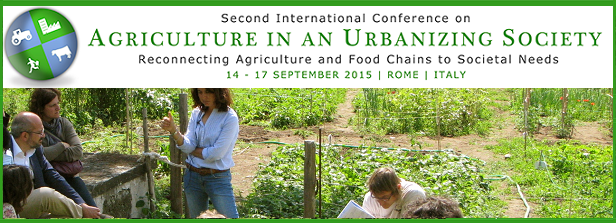
Urbanisation is a troublesome reality. By 2050, 70% of the population will live in cities, thus increasing the pressure on food systems, with the necessity to preserve land for food production and to manage enormous food flows towards cities. Among the challenges to face, there are 3 food paradoxes :
– malnutrition,
– land grabbing
– food losses and waste.
Our commitment on these must be related to the necessity we have to adapt to on-going climate changes, to work hard on global warming mitigation and to stop wasting all non renewable ressources…
Many speakers have invited us to question the logics that have brought us to where we are and in particular the omnipotence of technology. Transition asks us to move, either at personnal and collective level, from dualism towards integration.
This concerns many issues such as urban/rural, production/consumption, global/local, food sustainability/food safety etc.
Looking at agriculture, the modernization has been mainly based on chemistry and physics with emphasis on mechanization and chemical inputs. The reflexion on agro-ecology gives many indications on the ways to revert such trend, starting to restore farmers as stewarts of life rather than users of land and resources.
It is necessary to recognize the value of small scale farming and create more equitable situation in front of intensive monocultures development. As it has been quoted during plenary sessions :
Chinese peasants feed 22% of world population with only 7% of the world arable land. Such chinese experience shows that small scale agriculture is possible.
Looking for solutions, we must keep in mind that food is not only a concern, for it can be also a lever to reduce environmental impacts, increase resilience capacity and impulse local dynamics of social innovation.
In such an « open for change situation », civil society has a role to play as a space of innovation and as a driver of change for transition towards sustainable food systems. New governance models are needed that take into account the aspirations of civil society and facilitate the grass roots innovations. In such context, food policy councils can be considered as one of the most proeminent and rapid innovation in the last decade.
